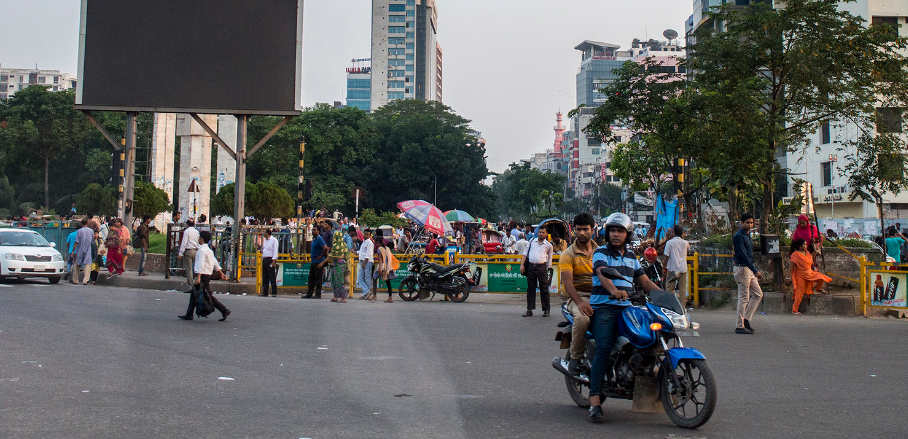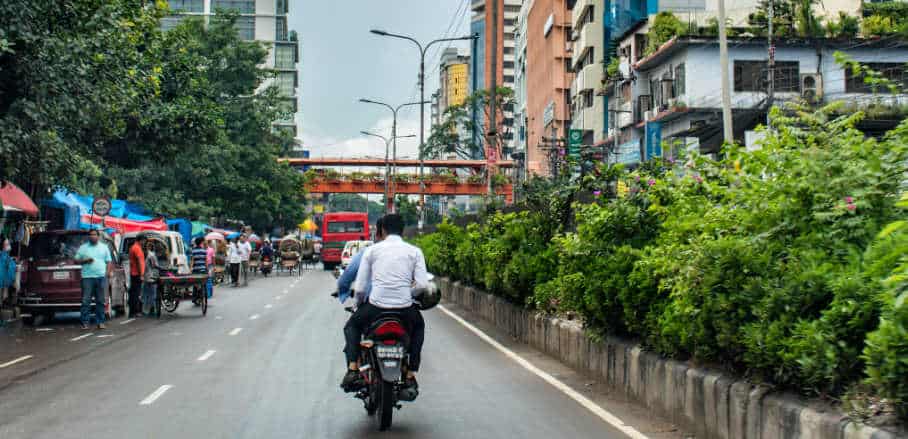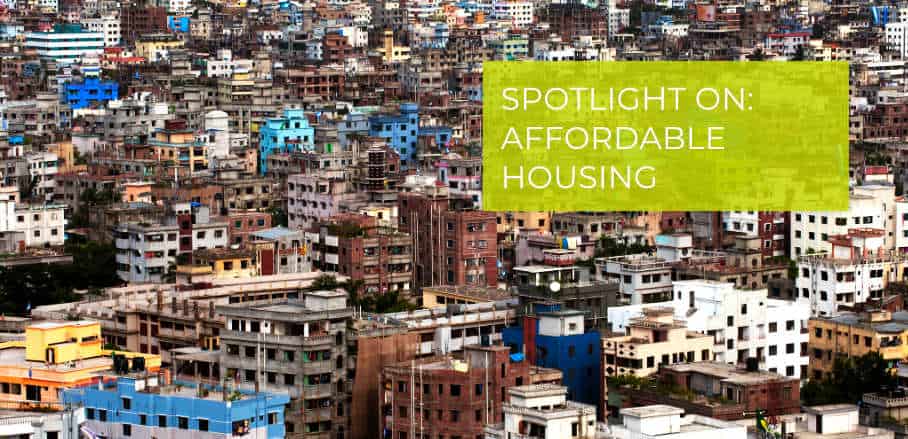Unplanned Housing in Bangladesh: The Problem with Housing Societies
When the government can’t provide sufficient housing, private co-operatives seem like a good idea – until they are not. Dr Mohammad Rezaul Karim provides a rare insight into the housing situation in urban Bangladesh and the consequences of unplanned housing.
Rural-to-urban migration, the expansion of urban areas and an ever-increasing urban population: many factors have forced the rapid growth of urbanisation in Bangladesh and have created the necessity for accommodation exponentially. To address this demand many working people from Bangladesh’s middle-class join private co-operative housing societies resulting in unplanned housing projects in urban areas.
Housing Societies in Bangladesh
Indeed, private housing societies in Bangladesh are on the rise as already limited government-owned housing is increasingly privatised and more and more people are moving to the city in search for better jobs, and ultimately a better life. Coupled with the relatively high rental costs of private accommodation, it is understandable why people organise themselves in housing societies to self-sufficiently buy apartments or construction plots – especially for families with low- and middle incomes. Their prime objective is to secure long-term and sustainable living spaces, especially for after retirement. For many residents, there are distinct advantages to buying property together rather than owning property as an individual.
Owners can minimise costs since cooperative housing is a joint venture and members are equally financially responsible. Better availability of basic amenities and more modern facilities in many co-operative housing projects is another benefit. Moreover, for many members of housing societies neighbours often become like family. Sharing common facilities such as playgrounds, celebrating social and religious events such as Eid or Puja, offering prayers in the mosque, organising wedding ceremonies, sending their children to the same school or organising local sports competitions: on the principle of mutually shared values and norms, a new form of kinship develops amongst society members.
Indeed, it is understandable why people choose to join these co-operatives. In practice, however, this may have many unintended consequences for cities and local communities alike.

Dhaka, Bangladesh. 38 per cent of the country’s population lives in cities and urban areas © ASaber91/flickr (CC BY 2.0)
Consequences of Unplanned Housing
The formation of private housing societies contributes to a great extent to the development of unplanned housing in urban Bangladesh. Private housing projects frequently violate government laws as they often fall off the radar of official supervision by the authorities. Private developers often also construct buildings without sufficient financial resources or a proper timeline of completion. The problem is that private investors and housing society members are not experts on urban development. What is worse is that their non-compliance of building codes and urban regulations pose a real threat for public health. Garbage is simply dumped on the streets and compromises the health of residents and the environment. Furthermore, the suburbs and other neighbourhoods adjacent to unplanned residential areas often turn into an illegal industrial complex. Many house owners run illegal businesses, such as printing shops, garment stores or clinics, without the permission of the government.
The restricted financial means of housing society members also pose a great challenge. Because of limited income, members are mostly dependent on small savings and bank loans. These financial shortcomings encourage them to engage in every activity throughout the housing project. Members sometimes serve as planners, designers, architects, and buyers of materials, sometimes all at once. Due to their limited expertise and financial resources, however, upholding the proper building rules and regulations is often severely compromised. Municipalities like Savar, Narayanganj, Tongi, Gazipur, Nawabganj are already faced with the disastrous consequences of unplanned and illegal housing projects, as the frequent outbreak of fires and building collapses show. Unplanned urban developments also convert green spaces and agricultural land to residential housing areas, reducing the number of already limited open and public community spaces.
Unplanned buildings, construction errors, unauthorised industrial factories and businesses, less and less habitable urban spaces, non-compliance of residents and house owners: all of these factors contribute to the development of new disaster points in urban Bangladesh.

Dhaka City Centre © ASaber91/flickr (CC BY 2.0)
A Way Forward
The growing prominence of housing societies and private urban development plans obstruct the implementation of a comprehensive urban plan necessary for creating a healthy living environment for all. Unplanned urban housing gradually becomes problematic for urban development. Hence, government should force citizens to follow the standard safety procedures and stop unplanned housing projects, before it’s too late. Authorities should revise rules and regulations to establish smart and green cities where local government and municipal corporations, locally known as paurasabhas, are empowered to ensure sufficient living spaces for all, for instance, by providing loans with low interest rates. We must also prioritise green areas and public spaces for community activities.
The government should also take efforts to further decentralise administration and establish strong local governance systems making cities the main driver for a liveable and sustainable urban future. Likewise, housing society members and property owners should follow the green city concept and ensure funds for the entire development phase before starting construction. Finally, we must consider diversifying our concept of growth and development. Concentrating on fostering growth across the entire country instead of in big cities, could also stop unplanned housing and build a better future for Bangladeshis everywhere.
- Unplanned Housing in Bangladesh: The Problem with Housing Societies - 13. October 2020
